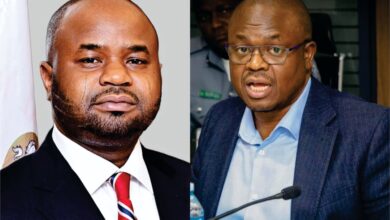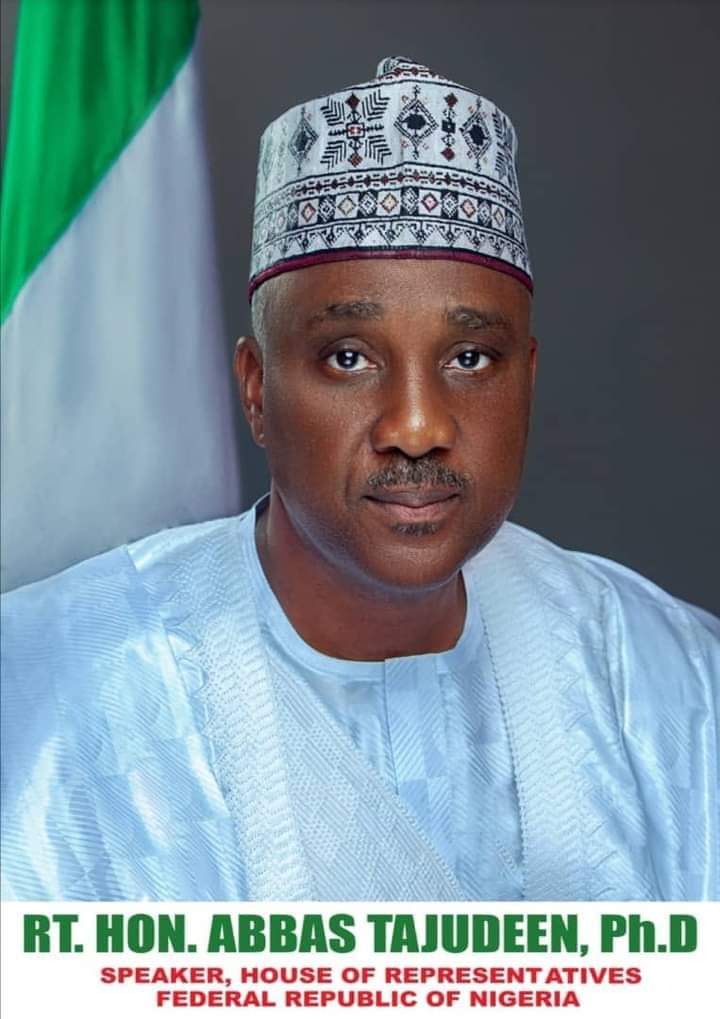
- Expanding Cost of Governance Against Implementation of Oronsanye Report
- The Many Overlaps
- Raising Questions About Nigerian Shippers’ Council Inordinate Quest for Influence
The Nigeria Shipping and Port Economic Regulatory Agency Bill, in its present form, is a contradiction of President Tinubu’s policy aimed at reducing cost of governance and implementation of the Oronsaye Report, writes Ismail Aniemu
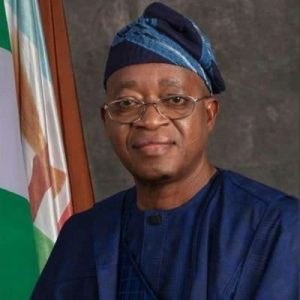
At a time when the federal government is reducing cost of governance and implementation of the Oronsaye Report, which recommended mergers of agencies whose functions overlap and constitute duplications, entrenched interest are looking to sabotage this effort with the Nigeria Shipping and Port Economic Regulatory Agency Bill.
The clandestine moves to force the bill through the National Assembly has resulted to a muted squabble in Nigeria’s maritime sector as its regulators jostle for supremacy in a power play likely to undermine trade facilitation and afflict Nigeria’s maritime and shipping value chain with the unenviable status of an overregulated business environment.
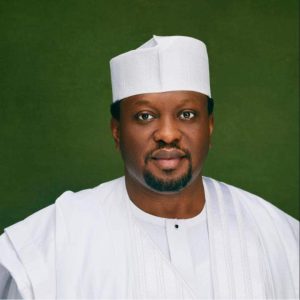
This is in addition to bloating the cost of governance at a time of the country needs more prudent approach to save cost, improve efficiency in service and grow the national economy
Sadly, the House of Representatives appears to be misled, made to appear as an interest group on this ill-motivated venture resulting in the call by many maritime stakeholders for experts’ review of the bill and proper repositioning to better serve national interest.
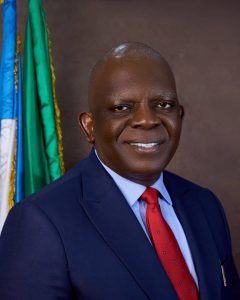
Stakeholders in the maritime sector have called on the federal government to stand its grounds and fully implement the Oronsaye report and save the country the huge cost of governance.
The House of Representatives Committee on Shipping Services and Related Matters had on Monday, May 27, 2024 held a one-day hearing to gauge public feedback and input on repealing the Nigerian Shippers Council (NSC) Act (Cap N133, LFN 2004) as prelude to enacting the Nigerian Shipping and Port Economic Regulatory Agency Bill.
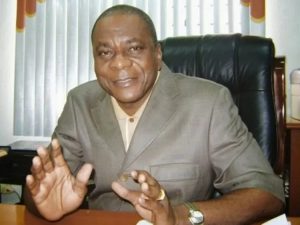
The Nigerian Shipping and Port Economic Regulatory Agency Bill 2023, with the Speaker of the House of Representatives, Tajudeen Abass, as lead sponsor, passed its second reading in March 2024.
One of the bill’s sponsors and Chairman, House Committee on Shipping Services and Related Matters, Hon. Abdussamad Dasuki, quoting a gazette, said the Nigerian Shippers’ Council was made the Port Economic Regulator in 2015 by the federal government, a status that needs formalising through legislation.
“The federal government noted that the objective of the regulation is to create an effective regulatory regime for the Nigerian ports after the concession of the ports. Port does not mean the Nigerian Ports Authority alone. It also means all the stakeholders in the ports, for the control of tariffs, rates, charges and other related economic services” Dasuki said on Wednesday 14th February 2024, while presenting the Bill to the House of Representatives.
Specifically, he added: “The shippers’ council’s gazette is being implemented today as a regulation and not as an Act. The Regulations provided that the Nigerian Shippers’ Council shall perform the role of interim Port Economic Regulator with the administrative backing of the federal government.”
Repealing the existing Nigerian Shippers’ Council Act, he concluded, is to empower the NSC to discharge its mandate as the Port Economic Regulator, adding that collation of memoranda from various stakeholders is ongoing prior to tabling a report before the House of Representatives for Third Reading.
Dissenting Voices
While there is a unanimous conclusion that the 2014 Federal Executive Council Gazette empowering the Nigerian Shippers Council to serve as port economic regulator deserves legislative enactment ten years after, there seems to be an inordinate quest by the council to usurp or cause an overlap on the functions of other agencies of government.
There are contrary positions in various quarters, not necessarily against the passage of the Nigerian Shipping and Port Economic Regulatory Agency Bill, but against misrepresentation of the agency to be created from the bill in terms of its functions and jurisdiction vis-à-vis other agencies in the maritime sector.
For instance, a thorough examination of the bill clearly shows that the powers and functions of the Nigerian Maritime Administration and Safety Agency (NIMASA) have been duplicated, considering that such functions as shipping regulation, issuance of certificates, licenses, fees, charges, and levies fall within the exclusive jurisdiction of the Nigerian Maritime Administration and Safety Agency. The bill failed to indicate how this will be remedied.
Even the agency has argued that the bill, in its present form, is a contradiction of the presidential policy specifically aimed at reducing cost of governance and implementation of the Oronsaye Report, which recommended mergers of agencies whose functions overlap and constitute duplications. There is need for revision, it says.
NIMASA is not alone as other agencies under the Ministry of Marine and Blue Economy are also demanding for ‘revision of the existing approach of operation guiding the agencies over the years.’
For example, the Nigerian Ports Authority (NPA), while not opposed to the bill, has highlighted the confusion that may ensue due to the combination of “Ports” and “Shipping” in a regulatory agency, and demanded for proper phrasing of the roles of the agencies to avoid encroachment and infringement. It also emphasised the need for the agency, which should be named the, “Nigeria Port Economic Regulatory Agency,” for clarity to avoid duplicating the functions of other players in the sector.
In addition, the NPA, as landlord agency, is saddled with granting of concessions to the concessionaire, under the statutory regulation and monitoring of the Infrastructure Concession and Regulatory Commission, meaning that the review of concessions, and indeed collection of all or part of the concession fees as in Section 28 of the bill cannot be the business of the proposed new Ports Economic Regulator.
A position paper presented by the agency said, “The intent and import of the Nigeria Shipping and Port Economic Regulatory Agency Bill is POLICY. It therefore MUST be driven by the sector policy arm of the executive – the Federal Ministry of Marine and Blue Economy. The function of parliament here is to facilitate seamless implementation of established policy by enacting the intent of the operators.”
The list of stakeholders disapproving further legislative processes on the bill to repeal the Nigerian Shippers Council Act CAP N133 LFN 2004 presently before the House of Representatives has continued to increase as maritime stakeholders under the aegis of National Council of Managing Directors of Licensed Customs Agents (NCMDLCA) have faulted content of the bill, even as they have called on President Bola Tinubu to intervene.
NCMDLCA in a letter to the President Tinubu, signed by the group’s President, Lucky Amiwero, also called on the Minister of Marine and Blue Economy, Adegboyega Oyetola to set up a committee of experts to properly guide the process of a bill on port regulation without over riding or conflicting with existing legislations.
Titled, A Bill for the Repeal of The Nigerian Shippers Council Act and Enact the Nigerian Shipping and Port Economic Regulatory Bill, the group criticised the role played by the House Representatives Committee on Shipping Services for convening a Public Hearing on a matter that falls under the purview of the Port and Harbour Committee.
The group requested that President Tinubu should consider the Port and Harbour Bill as the first to go through legislative process before the Port Regulatory Bill in order to measure up with the international best practice.
According to Amiwero, the Port and Harbour Bill should be considered first to resolve the components which are: Landlord /Marine operation, Port operation and Regulation and elements of the port which include traffic, tariff, labour and infrastructure.
They stated that the Nigeria Port Authority (NPA) Act 38 of 1999 has an all-inclusive function which comprises the elements and functions of the proposed bill.
He noted that the Nigerian Shippers Council Port Regulatory Bill which was withdrawn after it passed through first and second reading and was replaced with another Bill almost before the public hearing, was organised by the Committee on Shipping Service which include
He emphasised that the bill as proposed conflicts with the Federal Competition and Consumer Protection Act and seeks to usurp some of the functions of the Nigerian Ports Authority
The letter reads in part: ”The Nigerian Ports Authority Bill, should be considered, so as to define and include the three components: Landlord/Marine Operation, Port operation, and Regulation and the Port element Traffic, Tariff, Labour and infrastructure that was ceded to private terminals operators that is not contained in the Act”.
” However, the Nigeria Port Authority(NPA) 38 of 1999 has a comprehensive function, which covers the three elements, Regulation, Port operation and Landlord/Marine operation, Lacking component and characteristics of concession, Year of the concession, Nature of the concession BOT, etc”
” Nigerian Ports Authority (NPA) Act/Bill must come first, as they are the one who conceded their infrastructure, retrenched labour of almost 10, 000 workforce, shared their tariff with Terminal Operators and cargo throughput, they are left with a lot of injuries, pains and afflictions without the law being put in place until date ”
Conflict of interests and narrow articulation
It is worthy of note that following the port reforms programme and subsequent concessioning of the ports, there was consensus among stakeholders on the need to establish an economic regulator for the ports to provide a competitive and conducive environment for commercial activities in the industry.
Consequently, various versions of a bill to create this agency were developed and presented for legislative action in the 6th, 7th, 8th and 9th National Assemblies. However, none yielded the desired outcome due to perceived conflict of interests and narrow articulation.
In response, the federal government in 2014 signed an Executive Order that made the Nigeria Shippers’ Council an interim economic regulator for the ports pending the enactment of an Act.
Now, the process of enacting an appropriate law to streamline operational framework for the industry, particularly in port management, has become an exercise to overload the NSC with roles and powers well beyond the original purpose of an economic regulator.
Given the possibility of hitting the crossroads again arising from contradictory positions on the bill, perhaps the status quo should be allowed to remain, while consultations continue in order to avoid the fate of previous versions of the bill, which failed to see the light of the day.
It cannot be ruled out that personal gain, rather than national interest, may underpin the motivation of some persons pushing for enactment of the bill in its present form.
Meanwhile, contrary to experts view, the House of Representatives Committee on Shipping Services and Related Matters recently said the Nigerian Shipping and Port Economic Regulatory Agency Bill will curb arbitrary charges and other illegality of operators in the nation’s maritime industry when passed into law.
But experts have denounced this, stating that the house needed to trash the bill as it will result to inter agency rivalry and confusion.
Speaking with newsmen after a Public Hearing on the repeal of the Nigerian Shippers Council Act, Chairman of the Committee, Abdussamad Dasuki, explained that the Committee is still collating memoranda from various stakeholders on the bill before going ahead to present the report before the House of Representatives for third reading.
Dasuki said the bill seeks to repeal a law preventing NSC from enforcing a presidential directive concerning economic regulation of the ports.
He continued, “The bill is to repeal a law which is preventing the NSC from enforcing a presidential directive concerning economic regulation of the ports. The nation’s maritime industry is overdue for this, and we will see to its implementation.”







